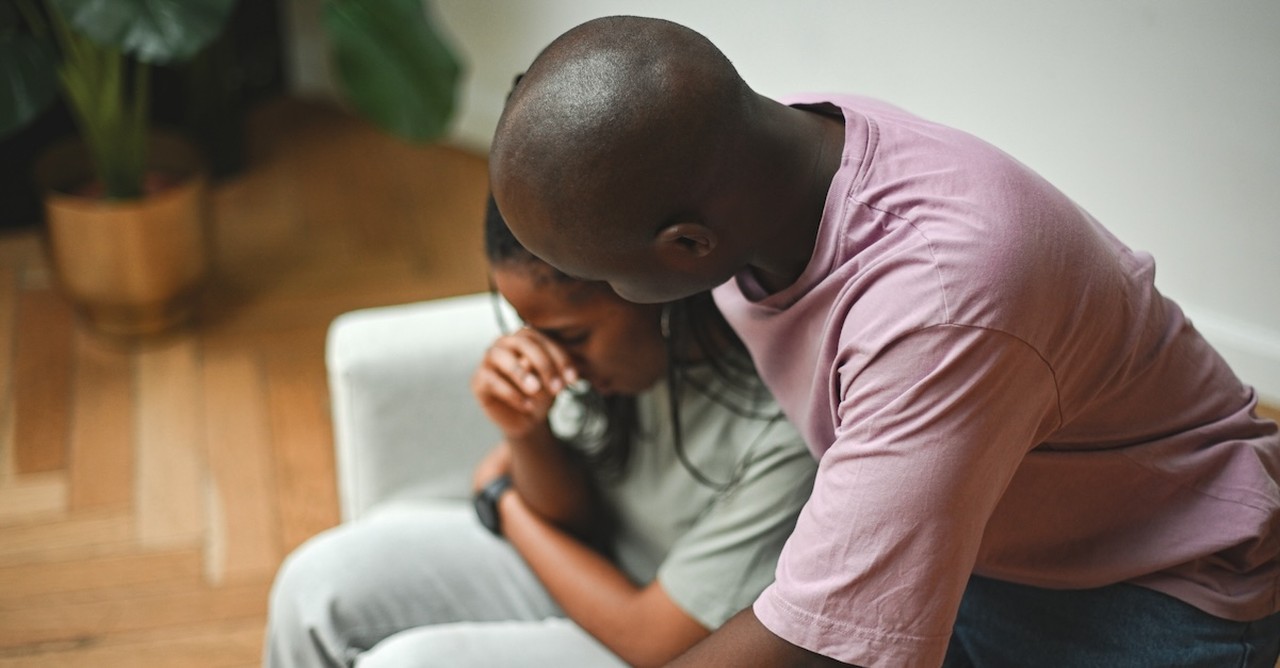4 Reasons Why You Shouldn’t Be Strong During Grief

Grief is a journey in life no one wants to experience but an experience no one can avoid. It is a natural, emotional response to losing something or someone meaningful to one's existence. It is a time in life when we come face to face with a loss that leaves an empty space in our lives in some way. Grief and loss come in many forms, and each form comes at an unexpected time, which can change the way we think, feel, and exist. It is a daunting process to go through that brings about an overwhelming wave of emotions that can be difficult to cope with.
In times of grief, we seek peace and comfort in different ways in an effort to cope with the loss. Many people engage in various self-care activities. Some seek comfort through cuisine, while others look to friends and family as a means of coping with their despair. During the process of grief, people offer their condolences by sending flowers, offering prayers, or kind words to console grieving hearts. However, more often than not, people are encouraged to be strong for themselves or someone else, or sometimes people will say that their strength during this time is admirable.
Finding the right words to say to someone when they are grieving can be difficult and somewhat awkward, especially if you have not experienced the type of loss they are currently experiencing. However, to suggest to someone that they have to be strong for someone else or even to be strong for themselves during a time of loss can be a bit insensitive.
Grief is a time when someone has reached an unexplainable peak of sorrow. Their hearts are vulnerable, they have unanswered questions, and life as they knew it has been changed. Many are seeking ways to cope with a loss and trying to figure out how to readjust their lives, so being strong during one of the weakest times of their lives may be one of the last things on their minds. If you have ever suggested that someone show strength during their time of grief, look at some reasons why you may want to rethink that suggestion.
1. Relying on God's Strength

1. Relying on God's Strength
SLIDE 1 OF 5
Grief is an overwhelmingly emotional time of loss where you need the support of others. As believers, we all know that we can lean and depend on God for anything in life, but especially in those moments when our human strength is at its lowest. When grieving, if you are relying on your own strength to heal your brokenness or to find comfort within yourself, you are failing to rely on God. Scripture constantly reminds us that God is our refuge, our comforter or healer, and our strength. It's okay not to rely on your own strength during your time of loss, as your strength is weak while grieving. Instead, take some time to look to the hills from where your help and strength come from and see how God will renew your strength in Him.
2. Improper Grief

2. Improper Grief
SLIDE 2 OF 5
Being strong during grief does not allow you to grieve properly. If you're so focused on being strong, you may lose focus on properly grieving. Losing focus on properly grieving can interrupt your process of coping and healing. If you're not grieving properly, then there is a good chance that you could suffer from depression, anxiety, or other unhealthy addictions to aid you in your time of grief. It's important for you to properly grieve your losses, big or small, in order for you to heal and move forward with your life as you see fit, and to regain a sense of normalcy.
Photo credit: ©GettyImages/sestovic
3. Suppresses Vulnerability

3. Suppresses Vulnerability
SLIDE 3 OF 5
Relying on self-strength during grief does not allow you to be openly vulnerable. Vulnerability allows you to open yourself to let go of something and receive something. During times of grief, it's important to be vulnerable to your feelings of loss in order to begin the path to healing. If you're being strong during any time of loss, you are failing to allow yourself to release the pain that came as a result of the loss, and you're failing to open yourself up to receive healing. Don't allow yourself to be so strong during the painful season of grief that you close off the opportunity to release your grief and welcome healing.
4. Acknowledging Your Feelings

4. Acknowledging Your Feelings
SLIDE 4 OF 5
Being strong during grief does not allow you to acknowledge your feelings. In order to heal, you must acknowledge your pain and work through it using various healthy coping mechanisms. Being strong during grief and avoiding your feelings can prolong your grieving and healing process, which can bring about detrimental effects to your overall health. The feelings you experience are unique to who you are and your healing. It's important to acknowledge everything you're feeling, understand it, and work through each feeling as you deem necessary.
Coping with a loss, expected or unexpected, is one of the most difficult journeys we go through in life. Whether it's the death of a loved one, the end of a relationship, the loss of a job, or even the loss of a physical or mental ability it's something every person has experienced and everyone has the right to grieve any loss however they see fit. Everyone grieves a loss differently, and at some point you have to show some strength to begin the grieving process.
However, you are not obligated to remain strong throughout your grieving period, no matter what anyone says or suggests. I'll never understand why people suggest for someone to be strong while experiencing a loss. While I do understand that they mean well, it's baffling to suggest that a hurting soul should hide their pain through strength.
Again, I understand that people mean well when they suggest that someone should be strong during grief, but I think they fail to realize that this one small suggestion can make someone feel ashamed of their grief, and it may make it difficult for them to grieve. Not only this, but a grieving soul may grieve in isolation for fear of someone suggesting that they need to be strong. Everyone deserves the freedom to grieve in a healthy way with genuine support to see them through. As previously stated, suggesting for someone to be strong during this time can be a bit insensitive unbeknownst to the person saying it. However, if you're looking for ways to encourage someone during a period of grief, take a look at the following list.
Things to Say or Do with Someone When They're Grieving

Things to Say or Do with Someone When They're Grieving
SLIDE 5 OF 5
-Instead of telling someone to be strong, tell them that you are praying for their strength in the Lord. In fact, it may be helpful to ask them if you can pray for their strength during this difficult time the moment you see them.
-If you want to help someone regain their strength, give them a list of Bible verses to read about God as their strength during times of loss. Reading the right scriptures from God's Holy Word will help someone in grief more than you know. To take things a step further, you can recite a scripture from the Bible while comforting them.
-Encourage a grieving soul to express their grief as they see fit. Encourage them to cry, talk about their loss, journal about it, and most importantly pray about it. Tell them it's okay to grieve how they desire, and assure them that no one is judging them. Helping someone through their grieving process means that you are a catalyst for helping them release their pain while simultaneously opening themselves to healing.
-It's often suggested that you share memories with someone who has lost a loved one. While this is a wonderful thing to do, it may be best to ask a surviving loved one if it is okay to share their memories with them while they're grieving. This is a small gesture of courtesy because sharing a memory of a lost loved one may trigger unsettled emotions.
-If you don't know how to properly encourage someone without suggesting they stay strong, give them a card with encouraging words to help them with their grief.
-Take some time to offer your physical support. You can bring them a meal, help organize things, man their phone, or whisk them away for a short period of time. No matter what you decide to do, allow them to be as vulnerable as they need to be.
Experiencing losses is a part of life's journey that we simply can't avoid. In order to navigate through it with peace of mind, we must be open to our weakness so that we can rely on God's strength. Relying on God's strength will draw us closer to Him and make us ready to receive the healing that comes along with grief to make us stronger. Going through grief with God, acknowledging your feelings and remaining open to the experience will allow us to grow through our grief, and ultimately become the strong person we are meant to be.

Originally published July 16, 2024.









